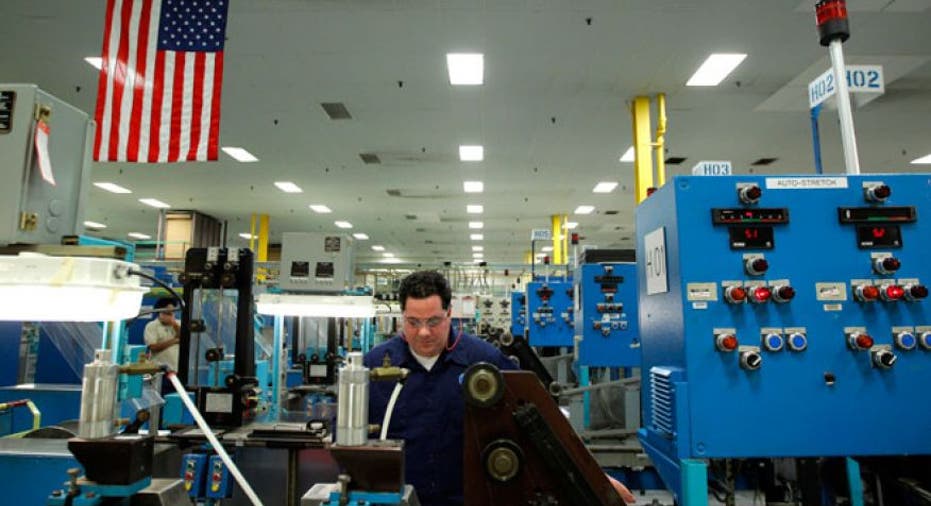Weak 4Q GDP Will Fuel Recession Fears

Economists are expecting a fairly weak GDP report on Friday. If the data, which show the first reading on fourth-quarter economic growth, come in as forecast, it will only fuel confusion over the true state of the U.S. economy and likely add to concerns the U.S. may be stumbling toward a recession.
David Kelly, chief market strategist at J.P. Morgan Funds, is predicting a “relatively soft number of 1% annualized growth” but with a bit of a silver lining. The weak fourth quarter could be setting up a stronger first quarter, he said.
Included in the forecasted 1% gross domestic product figure could be a sharp fall in inventory growth from $86 billion in the third quarter to $45 billion in the fourth, according to Kelly, which by itself would shave 1% off the total GDP growth rate.
“While this would be painful, it would also suggest that most of the inventory drag on the economy is behind us, setting up the potential for a pickup in growth in 2016,” Kelly suggested.
The first few weeks of 2016 have been rough on economic data, the stock market and U.S. investors. Data has been mixed at best, led by a strong December jobs report but offset by weak wage growth that has kept inflation well below the Fed’s 2% target.
Reports of weakness in emerging markets – notably China – have raised concerns that demand could slow for U.S. goods. And the plunge in oil prices is beginning to impact the vast U.S. energy sector through layoffs and threats of bankruptcy.
Meanwhile, the stock market is off to its worst start ever for a new year.
Federal Reserve policy makers acknowledged all of these concerns Wednesday after their January meeting, saying they’re keeping an eye on “global economic and financial developments and is assessing their implications for the labor market and inflation, and for the balance of risks to the outlook.”
The Fed left interest rates alone Wednesday and made clear that rates won’t be moving higher unless the broader economic picture brightens.
David Donabedian, chief investment officer of Atlantic Trust Private Wealth Management, said jittery investors will be closely watching Friday’s GDP report.
“If the reading is close to zero, that would be poorly received and feed the recession scare,” Donabedian said.
A recession is generally defined as two consecutive quarters of negative economic growth, or a six-month period during which the economy shrinks instead of expands. The most recent recession – commonly referred to as the Great Recession because of its profound severity and impact on the U.S. – came on the heels of the 2008 financial crisis. According to the government, it began officially in December 2007 and ended in June 2009, extending over 18 months.
But Donabedian believes concerns for an imminent recession thanks in part to the recent market turmoil and worries over slowing global growth, may be unfounded.
“We do not believe the economy is heading to a recession,” he said. “This is not 1950 when we had a manufacturing-based economy. Nor is our economy dependent on energy the way that Saudi Arabia or Russia is. We are a consumer driven economy, and we still have a decent set of factors, like income growth, consumer confidence and jobs. While not a robust growth story, we believe the economy will muddle through 2016 with slow growth rather than move into a recession.”



















